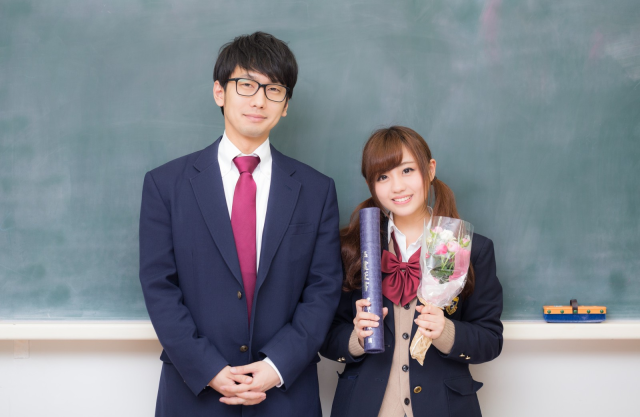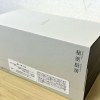
Two prefectures do away with once-standard question, over two dozen more consider following their lead.
Just about any stable job in Japan requires at least a high-school education, but compulsory education only lasts until the end of middle school (equivalent to the ninth grade in the U.S. school system). That means that students have to apply for admission to public high schools, usually by first applying to take the school’s entrance examination.
The application forms are pretty much what you’d imagine, asking applicants to provide information such as their name and address. However, as of this year, there’s one traditionally required piece of information some schools won’t be asking for: the child’s gender.
On applications for enrollment in the upcoming Japanese school year (which starts in the spring), public high schools in Osaka and Fukuoka Prefectures have abolished the gender question on students’ application paperwork. A third prefecture, Saga, still has a gender box on its application forms but allows applicants to leave that section blank.
The connection between entrance exams and gender may have some recalling the scandal that erupted when it came to light that Tokyo Medical University had been systematically reducing the test scores of female applicants for years. However, the decisions in Osaka and Fukuoka to stop asking high school applicants to specify their gender isn’t an attempt to avoid accusations of discriminatory application processes. According to a survey conducted by Japan’s Asahi Shimbun newspaper, the new policies are a response to growing acknowledgment of LGBT individuals, and are born of a desire to accommodate their personal identities.
The removal of the gender question (the specific Japanese term on the application forms was seibetsu, which can refer to both physical sex and gender identity) comes in the wake of such new policies as a middle school in Chiba Prefecture allowing male students to wear skirts as part of their uniform and another middle school in Kanagawa Prefecture giving female students the choice between wearing a skirt of long pants. While a gender question remains on public high school applications in 45 of Japan’s 47 prefectures, 14 of those 45, including Kanagawa, Kumamoto, and Tokushima, are considering removing the question for the 2020 school year, while an additional 11, such as Kyoto, Hokkaido, and Okayama, are also thinking of doing away with it, though without any concrete timeline for doing so.
Source: Yahoo! Japan News/Asahi Shimbun Digital via Hachima Kiko
Top image: Pakutaso

 No gender, photo, or first name – Japanese company makes major shakeup to job application forms
No gender, photo, or first name – Japanese company makes major shakeup to job application forms Fear and murder plague Western Japan golf courses over a checkbox on application forms
Fear and murder plague Western Japan golf courses over a checkbox on application forms Public schools in Japan’s Saga Prefecture will no longer regulate/check students’ underwear color
Public schools in Japan’s Saga Prefecture will no longer regulate/check students’ underwear color Tokyo women’s university will accept transgender students who identify as female, a Japan first
Tokyo women’s university will accept transgender students who identify as female, a Japan first Japanese public school to allow male students to wear skirts, chest ribbons as part of uniform
Japanese public school to allow male students to wear skirts, chest ribbons as part of uniform Foreigner’s request for help in Tokyo makes us sad for the state of society
Foreigner’s request for help in Tokyo makes us sad for the state of society Japanese-style accommodation at the new Premium Dormy Inn hotel in Asakusa will blow your mind
Japanese-style accommodation at the new Premium Dormy Inn hotel in Asakusa will blow your mind Ghibli Park now selling “Grilled Frogs” from food cart in Valley of Witches
Ghibli Park now selling “Grilled Frogs” from food cart in Valley of Witches Seaside scenery, history, and so many desserts on Yokohama’s Akai Kutsu【Japan Loop Buses】
Seaside scenery, history, and so many desserts on Yokohama’s Akai Kutsu【Japan Loop Buses】 All-you-can-drink Starbucks and amazing views part of Tokyo’s new 170 meter-high sky lounge
All-you-can-drink Starbucks and amazing views part of Tokyo’s new 170 meter-high sky lounge Smash Bros. director Sakurai stabs Kirby in the face, has delicious justification for it
Smash Bros. director Sakurai stabs Kirby in the face, has delicious justification for it New virgin-seducing lingerie collection from Japan throws virtue out the window【Photos】
New virgin-seducing lingerie collection from Japan throws virtue out the window【Photos】 Gorgeous Chinese woman creates one of Japan’s favorite mobile games, encourages microtransactions
Gorgeous Chinese woman creates one of Japan’s favorite mobile games, encourages microtransactions Akihabara pop-up shop sells goods made by Japanese prison inmates
Akihabara pop-up shop sells goods made by Japanese prison inmates Top 27 ugliest album covers from Yugoslavia 【Photos】
Top 27 ugliest album covers from Yugoslavia 【Photos】 McDonald’s new Happy Meals offer up cute and practical Sanrio lifestyle goods
McDonald’s new Happy Meals offer up cute and practical Sanrio lifestyle goods Japanese ramen restaurants under pressure from new yen banknotes
Japanese ramen restaurants under pressure from new yen banknotes French Fries Bread in Tokyo’s Shibuya becomes a hit on social media
French Fries Bread in Tokyo’s Shibuya becomes a hit on social media Red light district sushi restaurant in Tokyo shows us just how wrong we were about it
Red light district sushi restaurant in Tokyo shows us just how wrong we were about it New private rooms on Tokaido Shinkansen change the way we travel from Tokyo to Kyoto
New private rooms on Tokaido Shinkansen change the way we travel from Tokyo to Kyoto Tokyo Tsukiji fish market site to be redeveloped with 50,000-seat stadium, hotel, shopping center
Tokyo Tsukiji fish market site to be redeveloped with 50,000-seat stadium, hotel, shopping center Japanese city loses residents’ personal data, which was on paper being transported on a windy day
Japanese city loses residents’ personal data, which was on paper being transported on a windy day Beautiful Ghibli sealing wax kits let you create accessories and elegant letter decorations【Pics】
Beautiful Ghibli sealing wax kits let you create accessories and elegant letter decorations【Pics】 Secret Kitchen bento serves Japanese flowers, birds, wind and moon in a box, but is it worth it?
Secret Kitchen bento serves Japanese flowers, birds, wind and moon in a box, but is it worth it? New definition of “Japanese whiskey” goes into effect to prevent fakes from fooling overseas buyers
New definition of “Japanese whiskey” goes into effect to prevent fakes from fooling overseas buyers Our Japanese reporter visits Costco in the U.S., finds super American and very Japanese things
Our Japanese reporter visits Costco in the U.S., finds super American and very Japanese things Studio Ghibli releases Kiki’s Delivery Service chocolate cake pouches in Japan
Studio Ghibli releases Kiki’s Delivery Service chocolate cake pouches in Japan More foreign tourists than ever before in history visited Japan last month
More foreign tourists than ever before in history visited Japan last month New Pokémon cakes let you eat your way through Pikachu and all the Eevee evolutions
New Pokémon cakes let you eat your way through Pikachu and all the Eevee evolutions Disney princesses get official manga makeovers for Manga Princess Cafe opening in Tokyo
Disney princesses get official manga makeovers for Manga Princess Cafe opening in Tokyo Sales of Japan’s most convenient train ticket/shopping payment cards suspended indefinitely
Sales of Japan’s most convenient train ticket/shopping payment cards suspended indefinitely Sold-out Studio Ghibli desktop humidifiers are back so Totoro can help you through the dry season
Sold-out Studio Ghibli desktop humidifiers are back so Totoro can help you through the dry season Japanese government to make first change to romanization spelling rules since the 1950s
Japanese government to make first change to romanization spelling rules since the 1950s Ghibli founders Toshio Suzuki and Hayao Miyazaki contribute to Japanese whisky Totoro label design
Ghibli founders Toshio Suzuki and Hayao Miyazaki contribute to Japanese whisky Totoro label design Doraemon found buried at sea as scene from 1993 anime becomes real life【Photos】
Doraemon found buried at sea as scene from 1993 anime becomes real life【Photos】 Tokyo’s most famous Starbucks is closed
Tokyo’s most famous Starbucks is closed One Piece characters’ nationalities revealed, but fans have mixed opinions
One Piece characters’ nationalities revealed, but fans have mixed opinions We asked a Uniqlo employee what four things we should buy and their suggestions didn’t disappoint
We asked a Uniqlo employee what four things we should buy and their suggestions didn’t disappoint Kyoto families angered by new policy forcing high school students to buy tablets at own expense
Kyoto families angered by new policy forcing high school students to buy tablets at own expense Japanese school renames boys, girls uniforms as “Type I” and “Type II” in gender identity reform
Japanese school renames boys, girls uniforms as “Type I” and “Type II” in gender identity reform Majority of Nagasaki high schools and middle schools have white-underwear-only rules, study finds
Majority of Nagasaki high schools and middle schools have white-underwear-only rules, study finds Manga artist wants Japanese teachers to feel, for two seconds, how dumb their girls’ dress code is
Manga artist wants Japanese teachers to feel, for two seconds, how dumb their girls’ dress code is Petition to allow students to choose what they wear to school gathers almost 19,000 signatures
Petition to allow students to choose what they wear to school gathers almost 19,000 signatures Students in Japan get free point on entrance exam because of typo, Internet says they got off easy
Students in Japan get free point on entrance exam because of typo, Internet says they got off easy Sports-playing Japanese junior high students at an all-time low, survey finds
Sports-playing Japanese junior high students at an all-time low, survey finds Japanese teacher beats up student for making fun of his body by calling him anime character name
Japanese teacher beats up student for making fun of his body by calling him anime character name Japanese high school adds culottes to uniforms to better accommodate gender diversity
Japanese high school adds culottes to uniforms to better accommodate gender diversity Tokyo public schools will stop forcing students with non-black hair to dye it, official promises
Tokyo public schools will stop forcing students with non-black hair to dye it, official promises Female high school students continue to be banned on baseball field at Koshien Stadium in Japan
Female high school students continue to be banned on baseball field at Koshien Stadium in Japan Don’t like trigonometry? Then you’re just like Hitler, says Japanese high school English teacher
Don’t like trigonometry? Then you’re just like Hitler, says Japanese high school English teacher Not everyone hates school uniforms: Japanese Twitter shows us why
Not everyone hates school uniforms: Japanese Twitter shows us why Japanese high schooler fails driver’s license test 20 times, tries to hire someone else to take it for him
Japanese high schooler fails driver’s license test 20 times, tries to hire someone else to take it for him Over half of Japanese students in nationwide test score zero percent in English speaking section
Over half of Japanese students in nationwide test score zero percent in English speaking section New Pantene commercial interviews Japanese trans individuals about difficulties of job hunting
New Pantene commercial interviews Japanese trans individuals about difficulties of job hunting
Leave a Reply